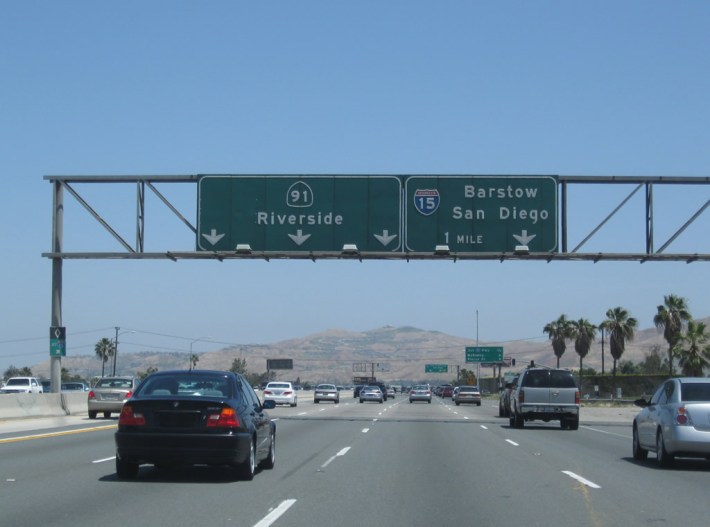When the Senate Environment and Public Works Committee unanimously passed a two-year transportation reauthorization bill last month, it quickly became clear that bipartisan support was coming at a price. First, we learned that the Transportation Enhancements bike/ped programs would lose their dedicated funding. Now, we learn that Transportation Infrastructure Finance and Innovation Act (TIFIA) loans will no longer hold applicants to as high an environmental standard -- or any standard, really.

TIFIA is a popular program, receiving $14 billion in loan requests despite only being able to loan about $1 billion in total this year. And under current law, the extent to which the project "helps maintain or protect the environment" makes up 20 percent of a project's evaluation. In the EPW bill, the program is expanded by a factor of nine, but most evaluation criteria -- including environmental protection -- are omitted.
As Matt Sledge wrote in the Huffington Post:
Phineas Baxandall, a senior analyst at U.S. PIRG, said he thinks [EPW Chair Senator Barbara] Boxer may have cut a bad deal. He argues that doing away with TIFIA's selection criteria means the U.S. Department of Transportation will be forced to give money to any transportation project that meets bare-bones financial eligibility requirements [...] Toll roads, backed by private investors looking to make a buck off of "public-private partnerships," will be first in line, he argued, since they have plans that are "just ready to go off the shelf." [...]
Los Angeles hopes it will get some of that TIFIA money. Not so fast, Baxandall said. "Places like Atlanta and L.A. are hoping that the new bounty of TIFIA will allow them to finance public transit expansions, but they are likely to find the money already claimed by private toll road projects in places like Florida and Texas."
An LA Metro spokesperson told HuffPo he's still "pretty confident" they'll get TIFIA funds.
It's hard not to see this as a step backwards, despite the funding increase. It wasn't long ago that transit advocates were celebrating an end to the Bush-era's "cost-effectiveness-above-all-else" rule in the Federal Transit Authority's New Starts program. Now, Baxandall says, "at a time when the nation's transportation system is starved for funds and there is a consensus that dollars need to be spent more wisely, it is outrageous that the one program that would be massively increased would no longer try to deliver the best bang for each buck."
The good(-ish) news is that there's still time to make changes to the bill. The Senate Banking Committee still has to work on a transit portion, the Senate Finance Committee still has to figure out how to come up with another $12 billion, the whole Senate still has to debate it all, and the House still has to do... anything.





